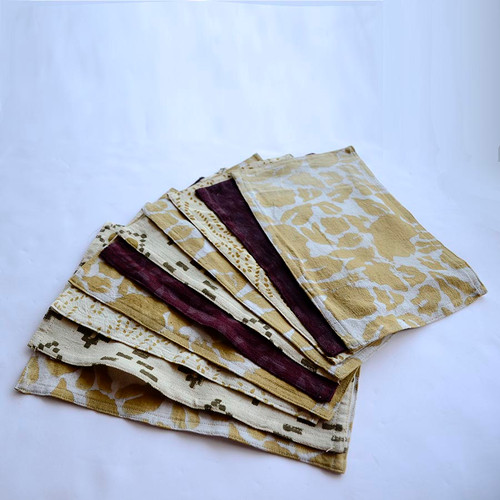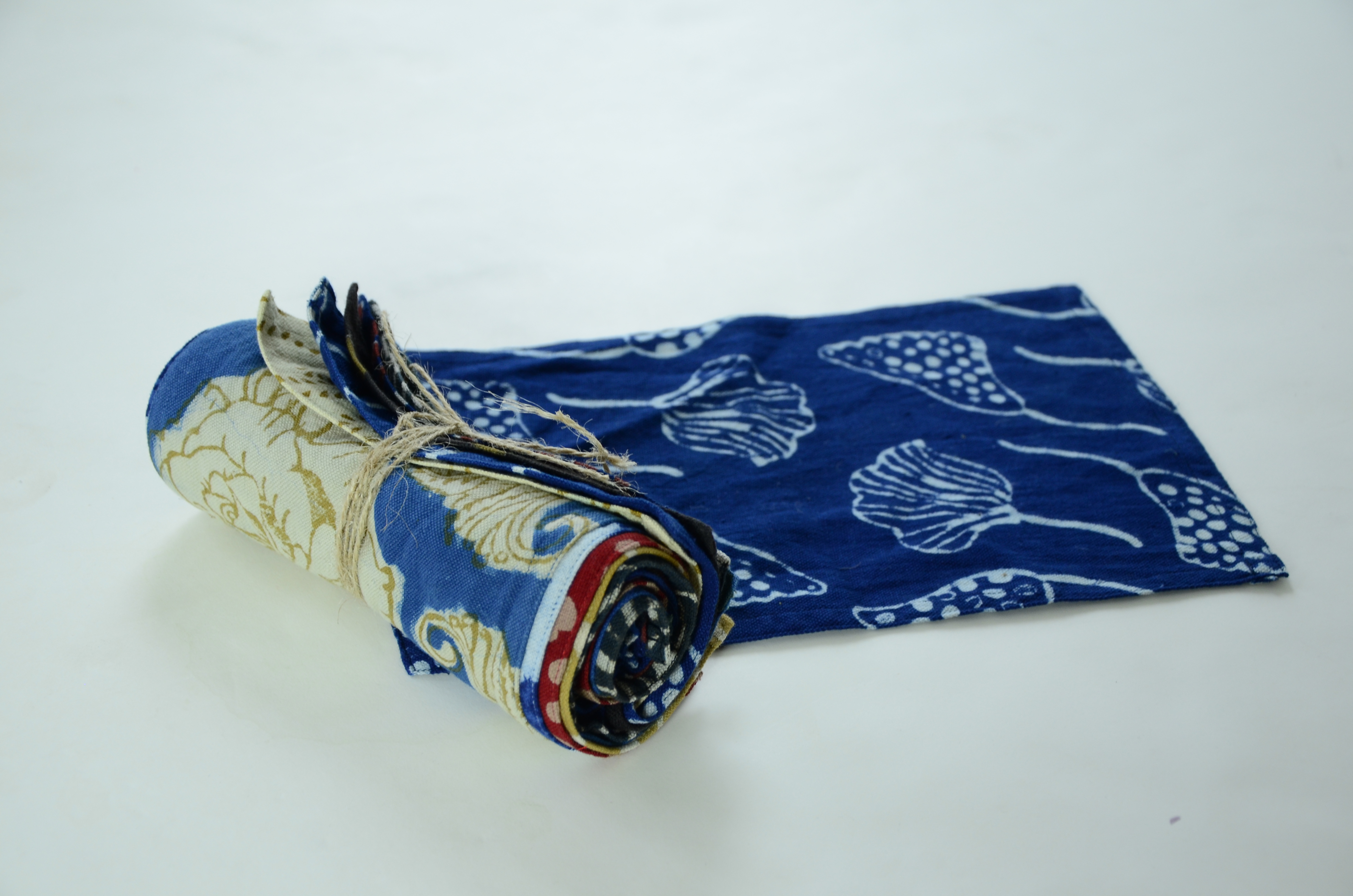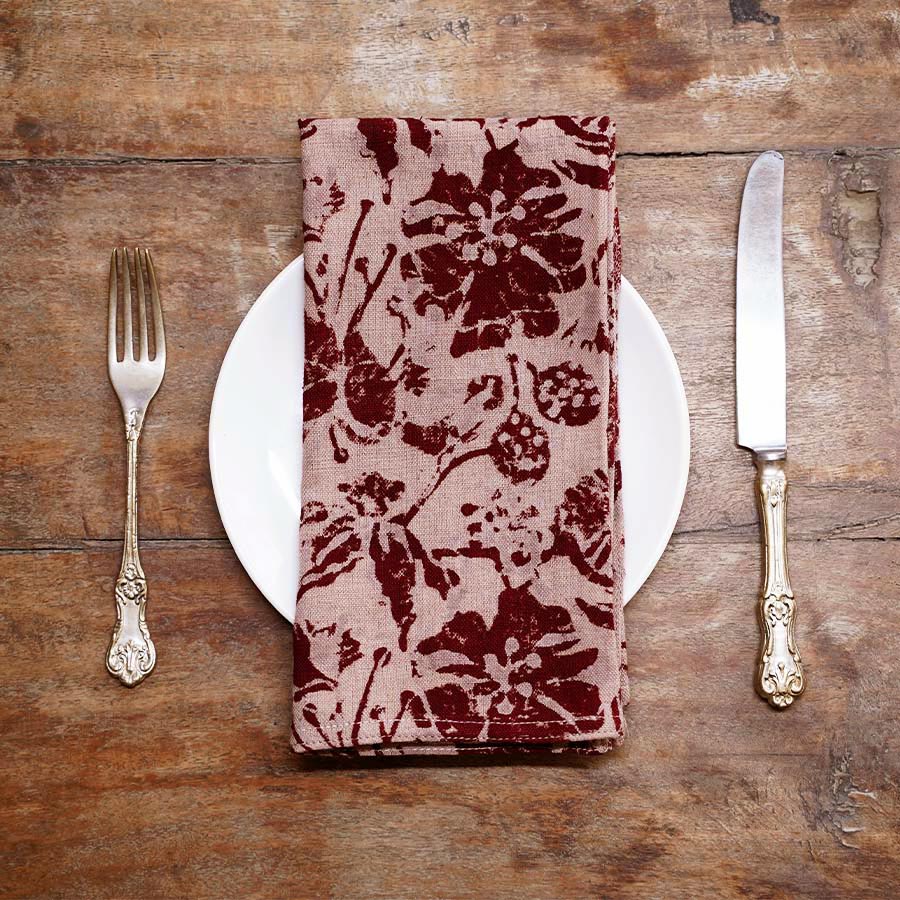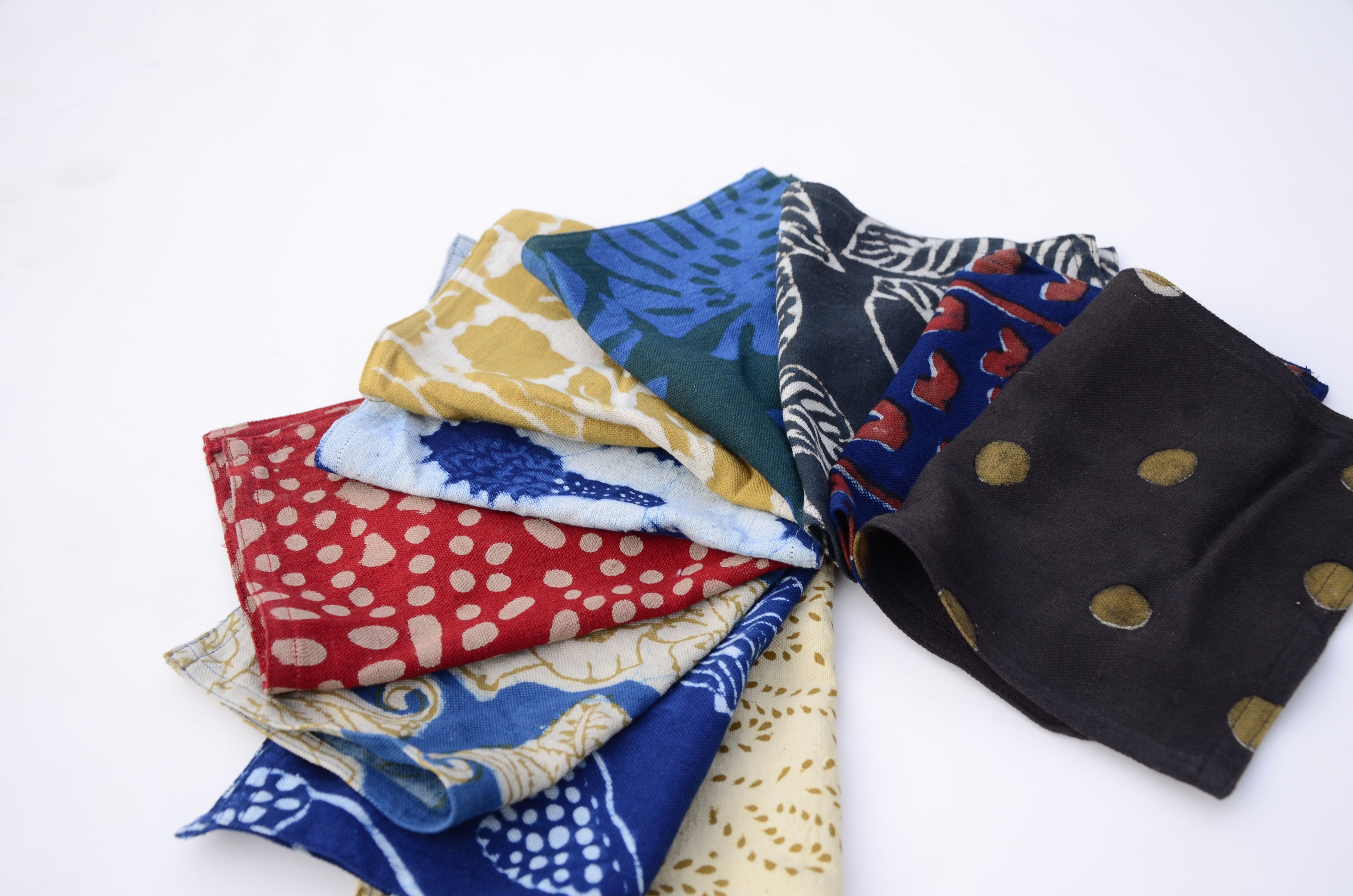Eco-friendly napkins: paper or cloth?
Posted by The Ichcha Team on 7th Apr 2025
Eco-friendly napkins: paper or cloth?
When comparing paper napkins and cloth napkins, there is no clear-cut answer about which is more eco-friendly. In general, cloth napkins are more sustainable because they use less water for production and don't require trees to be cut down. However, recycled paper napkins aren't a bad choice, considering raw materials are not used for production. So, as you can see, there are some factors to consider.
To gain clarity, let's have a closer look.
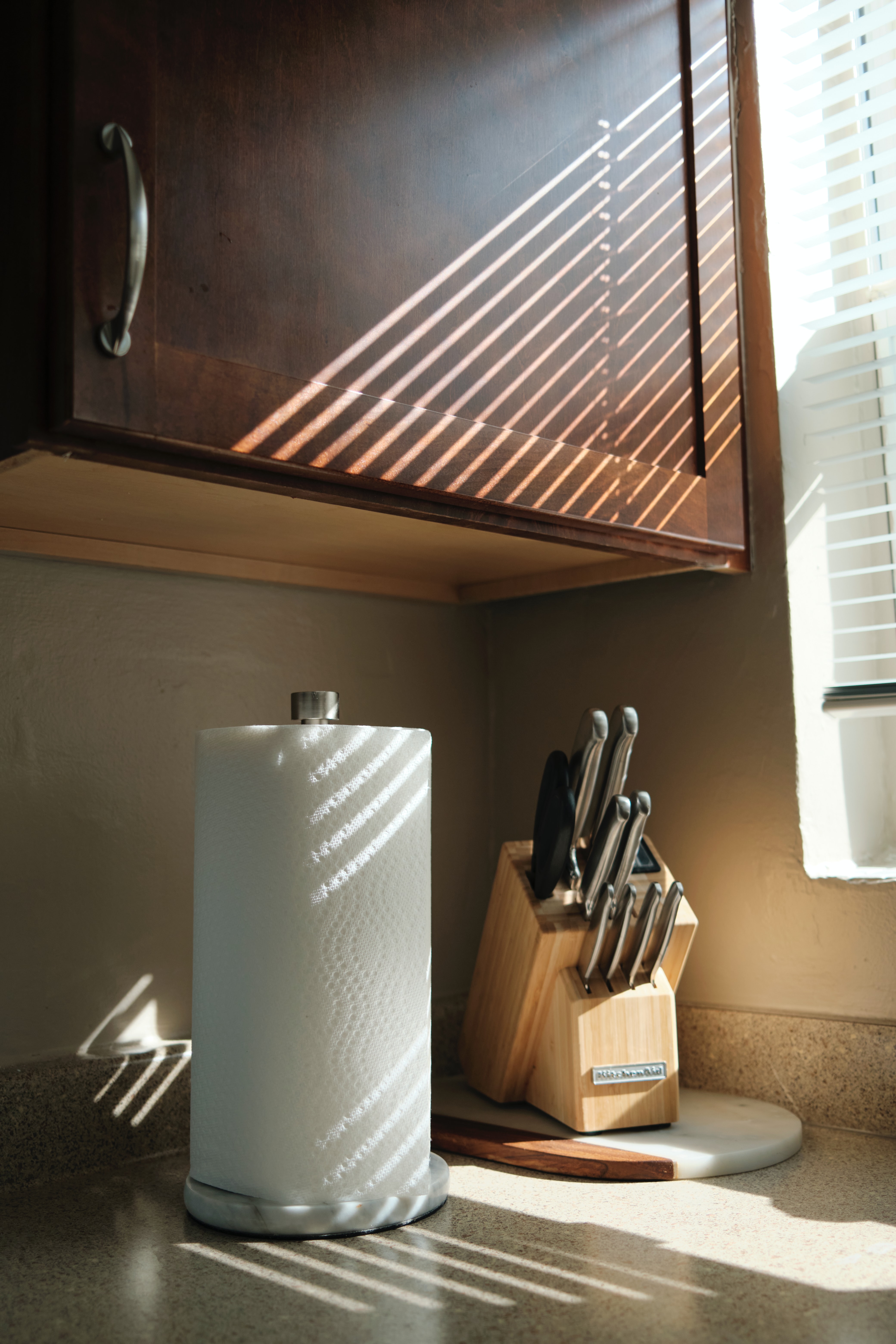
Paper vs. cloth napkins: How is the material sourced?
Paper napkins are made from wood pulp, which comes from cutting down trees. This process uses a lot of water and releases greenhouse gases into the atmosphere. In fact, producing a single ton of paper napkins requires 17 trees and 24.5 gallons of water, and produces up to 7.5 pounds of greenhouse gases. That's a lot of water and toxic gases for something that we use once and discard.
On the other hand, cloth napkins are made from materials like cotton or linen. While conventional cotton production requires even more water than paper napkins, linen is a more eco-friendly option. Cotton requires about 43.3 gallons of water for production and releases 3.9 pounds of greenhouse gases.
Linen napkins only use 8.9 gallons of water and release just 1.9 pounds of greenhouse gases during production. That's because the flax plant, from which linen is made, only needs rainwater to grow and doesn't require any irrigation.
So, the most eco-friendly option between cloth and paper napkins largely depends on the material they are made from. And what if I told you that there was an even more eco-friendly option than Linen Napkins? Organic cotton napkins are the most sustainable choice, even more eco-friendly than linen and conventional cotton. Keep reading to learn more.
Paper vs. cloth napkins: reusability and recycling
When it comes to the environmental impact of paper vs. cloth napkins, there are some things to consider, such as reusability and recycling. Paper napkins are only suitable for one use, after which you must trash. However, they are biodegradable, so they can be added to your compost bin.
But there's a catch: for a paper napkin to be compostable, it must be devoid of oil stains. Truth is, that's almost impractical. Paper napkins usually end up covered in oils, even though just a little, which compromises their compostability.
If your paper napkin is covered in cooking oil, fats, and animal proteins, it should be kept out of the compost pile. That's because these substances are hard to break down and will only lead to rot in the pile. If you've used a paper napkin to clean soapy water off your countertop, keep it out of the compost pile, as detergent is harmful to microorganisms that break down compost.
The fact that paper napkins cannot even be used for compost because of oil stains makes them absolutely one-off and, hence, bad for the environment.
Cloth napkins are reusable, making them more eco-friendly than paper towels. You can use the same cloth napkin for years; simply wash it when it gets dirty and use it again. When they've lost their shine, cloth napkins can be upcycled.
While you can't recycle cloth napkins yourself, you can take them to a recycling company. If your cloth napkin develops a stain you can't get rid of, you can repurpose it as a rag.
Overall, when it comes to choosing between paper and cloth napkins, consider their reusability and recyclability. Cloth napkins are more sustainable than paper towels because they can be reused for years and then recycled.
Are cloth napkins the most eco-friendly choice?
The answer is it depends. Cloth napkins are generally more eco-friendly than paper napkins. Linen is preferred over cotton because it uses less water and produces fewer greenhouse gases during production.
However, the most sustainable option ultimately depends on the source material used for production. Recycled paper is a better choice than virgin paper, and using napkins made from 100% recycled paper can reduce energy usage and waste during production.
One ton of recycled paper can save over 4,000 kWh of energy, 7,000 gallons of water, 3 cubic yards of landfill space, and prevent 60 pounds of air pollutants from being released. Office paper, magazines, cardboards, and computer papers can all be recycled into paper napkins.
If you want to use paper napkins in a way that is friendlier to the environment, go for recycled ones.
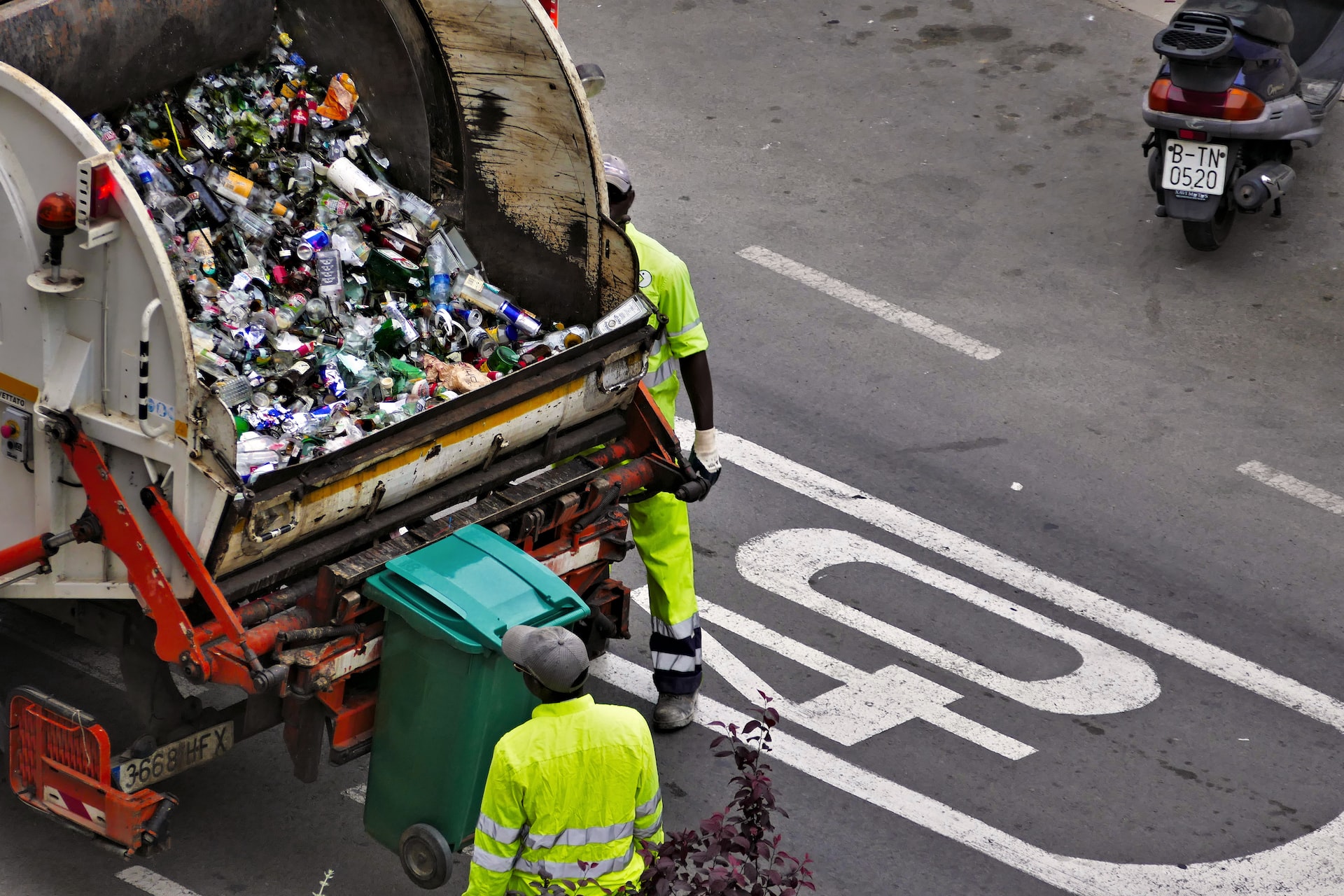
Are linen napkins more eco-friendly than cotton fabrics?
While linen napkins are considered more eco-friendly than cotton, that's only true for conventional cotton. Organic cotton, such as the one used to make these block print napkins, requires no pesticides or irrigation to grow. It is purely rain-fed, making it one of the world's most water-efficient kinds of cotton. And since no fertilizer or pesticide is needed, it reduces nitrogen emission that goes into the atmosphere.
Organic cotton is almost carbon neutral, making it an even more eco-friendly alternative to linen napkins. It produces 94% less greenhouse gas emissions. Beat that! So, using organic cotton napkins can help you reduce your carbon footprint more than paper and linen ever could.
That's not all. Cotton is more absorbent than linen, making it preferred for cleaning spills. If you want to reduce your carbon footprint plus the absorbent quality of cotton napkins, go for 100% organic cotton napkins instead of linen or tissue paper.
Zero waste napkins: reducing your environmental impact
Our block-printed napkins are made with organic cotton that is hand-printed and hand-dyed using natural dyes and zero chemicals. This ensures that the entire production process causes the lowest possible environmental impact. We make these napkins especially for people like you: people who care about the environment and want to use eco-friendly products in their daily lives.
But that's not all. We also make sure to source our cotton from organic cotton farmers who are paid fairly for their work. When you buy one of our cotton cloth napkins, you're supporting local farmers, cotton weavers, and block printers who are dedicated to their craft. You are not only supporting the environment and the livelihoods of artisans, but you are also preserving their traditions and culture.
Get decorative, 100% cotton napkins.
Our zero-waste cocktail napkins were born out of the idea that no fabric should go to waste. The scrap fabric leftover from our regular sized napkins were made into these 8” square cocktail napkins. Not only are these organic cotton napkins great for your cocktails and meals, but they're also a good size for kids to use. Rather than carrying large napkins, these are a great lightweight option to take out on your picnics or travels.
Our zero-waste mission doesn't end there. We also created everyday towels in your paper towel size that are good for cleaning up spills. They look pretty and are washable and reusable. Imagine how many trees are saved when we use cloth towels instead of paper towels. Affordable and eco-friendly, they are the perfect choice for your everyday use.
FAQ: Cloth Napkins vs. Paper Napkins
Are cloth napkins better than paper napkins?
Cloth napkins are more durable, reusable, and eco-friendly compared to disposable paper napkins. They reduce waste and offer a more elegant dining experience.
What is the best material to use for napkins?
Cloth is the best material for napkins as it is more elegant and sustainable than paper towels. Organic cotton is also more cost-effective, absorbent, and even more sustainable than linen, making it the best fabric for napkins.
Is it cheaper to use cloth napkins?
In the long run, cloth napkins are more cost-effective than paper napkins because they can be washed and reused multiple times, reducing the need for constant repurchasing.
Why do restaurants use cloth napkins?
Restaurants use cloth napkins for their elegant appearance, superior absorbency, and sustainability. They enhance the dining experience while also reducing waste compared to disposable alternatives.
Updated April 2025

